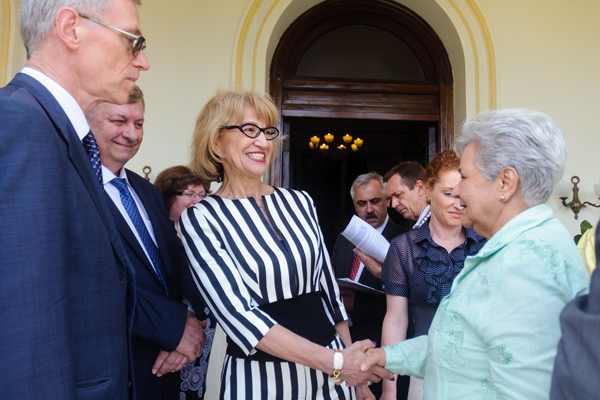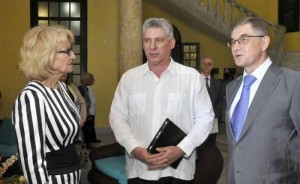
Russia, Cuba perform joint audit of business deal
The Cuban government went on record this week to warn all levels of its import structure that it will not permit mismanagement in Havana’s dealings with Moscow. The warning, though symbolic, was clear.
A two-day meeting ended Friday (April 18) in Havana between officials of Cuba’s Office of the Comptroller General and Russia’s Accounts Chamber, at which the Cuban panel audited four Cuban companies engaged in the importation of Russian equipment and technical advice.
The equipment — used for construction, agriculture, rail transportation and other sectors — had been sold to Cuba under a credit line authorized by an agreement signed in July 2009. The amount of the credit line was not disclosed to the press.
Simultaneously, the Russian delegation audited the Russian companies that provided the material.
Both parties declared the deal properly executed, although the head of the Cuban panel, Comptroller General Gladys Bejerano Portela (on right in photo above shaking hands with Vera E. Chistova), said that “we have identified deficiencies in the management of the interacting entities and have issued recommendations that will be delivered to the leadership of the respective governments, for the sake of future efficiency.”
Bejerano stressed the “transparency” of the exercise, which, she said, “will heighten the level of responsibility of the people and entities involved.”
Vera E. Chistova, deputy chairwoman of the Russian Accounts Chamber, was quoted as saying that “any state is interested in making budget outlays be more efficient.” An exercise like this “is a mechanism in the struggle against corruption,” she said.
Russia and Cuba last year signed an agreement in Moscow providing for closer state controls over trade financing, credit lines, etc. The objective was to prevent inefficiency, waste and mismanagement.

Last week’s exercise was remarkable in that it was open to the local and foreign media, an indication that the Castro government wants to impress the business community that it is serious about reducing irregularities in the import trade, especially when it involves such important suppliers as Russia.
Miguel Díaz-Canel, First Vice President of the Councils of State and Ministers, was present at the exercise and described it as “a novelty,” “an interesting experience that is worthwhile observing and says much of the road being followed by relations between Cuba and Russia.”
Chistova said that both sides plan to perform similar audits of the forthcoming sale to Cuba of Russian commercial aircraft. On March 28, the Russian manufacturer Voronezh Aircraft announced that will sell to Cubana de Aviación an undisclosed number of Antonov-148 planes for regional travel.
The AN-148 is a twin turbojet that carries 65-85 passengers.


